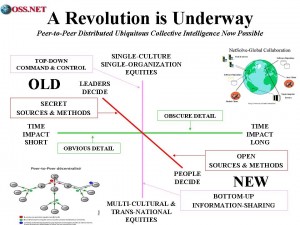
The Next Surge: Counterbureaucracy

By JONATHAN J. VACCARO December 7, 2009
THE Taliban commander was back in the village. Our base roared to life as we prepared to capture him. Two Chinook helicopters spun their blades in anticipation in the dark. Fifty Afghan commandos brooded outside, pacing in the gravel. I was nearby, yelling into a phone: “Who else do we need approvals from? Another colonel? Why?
. . . . .
While the troops prepared, I spent hours on the phone trying to convince the 11 separate Afghan, American and international forces authorities who needed to sign off to agree on a plan.
Some couldn’t be found. Some liked the idea, others suggested revisions. The plan evolved. Hours passed. The cellphone in the corner rang. “Where are you?” the villager asked urgently. The Taliban commander was drinking tea, he said.
At 5 a.m. the Afghan commandos gave up on us and went home. The helicopters powered down. The sun rose. I was still on the phone trying to arrange approvals. Intelligence arrived indicating that the Taliban commander had moved on. The villagers were incredulous.
Jonathan J. Vaccaro served as an officer with the United States Army in Afghanistan from January 2009 to July 2009.
Phi Beta Iota: Micro-management is the last refuge of Epoch A managers who do not know any better. It signals the end of bureaucracy, a German concept that elevated “lanes in the road” and protocol to new heights, which incapacitating all who are actually in touch with reality. In fairness to the Germans, they also produced Field Marshall Rommell and his concept of the “strategic corporal” such that when that corporal found a gap, he could call on the entire division to follow him into this break in enemy lines.
Below is a graphic that we created in the 1990's to illustrate the difference between Epoch A and Epoch B leadership. Today in Afghanistan we have Epoch B leaders–the company commanders who culled their shooters for high IQ individuals and created company intelligence analysis cells. Their companies are reported to do better than those companies that wait for top-down intelligence that is rarely forthcoming and often wrong.
America is at a fork in the road. We can keep doing the wrong things righter, or we can start doing the right things, beginning with a defense open source intelligence program and an embedded multinational multinational intelligence-operations support center with global reach that will simultaneously enable and empower Whole of Government inter-agency planning, programming, and budgeting.




